Former Child Star Says Being “Sexualized” by Fans Made Her Feel “Ashamed”
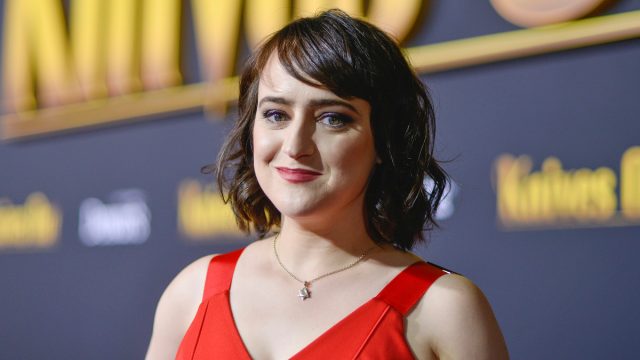
In the 1990s, Mara Wilson was one of the most recognizable child actors in Hollywood. Between 1993 and 1996, she starred in Mrs. Doubtfire, Miracle on 34th Street, and Matilda, and she had a recurring role on the TV show Melrose Place. But, while hers may have seemed like a dream life to some, being a child star wasn’t easy for Wilson. At its worst, she was sexually harassed and sexualized online when she was still a kid.
This is something that Wilson has opened up about a lot, including in an February 2021 op-ed in The New York Times titled “The Lies Hollywood Tells About Little Girls.” In the piece, the former young star compares herself to other celebrities who became famous at a young age, writing, “Our culture builds these girls up just to destroy them.”
Read on to see what Wilson has said about being a child star and why one harrowing aspect of the experience made her feel “ashamed.”
READ THIS NEXT: Former Child Star Says She Was Given “Happy Pills” Before Interviews.
Wilson was aware she was being sexualized at a young age.
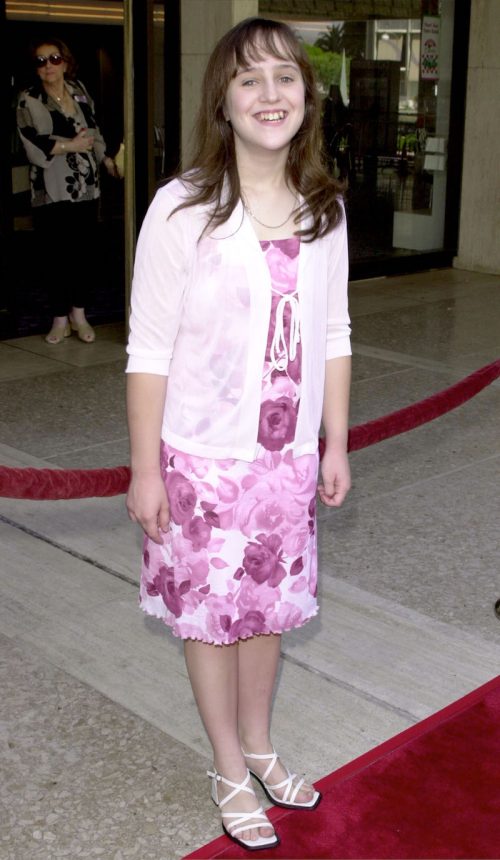
Wilson acted regularly until the year 2000, when she starred in Thomas and the Magic Railroad at age 13. She explains in her New York Times article that, at this point, she was already being scrutinized—she was described as being “at midlife” in one interview write-up—and being sexualized by the media and the public.
The Matilda star compares her experience to that of Britney Spears, who was also mistreated by the media and subject to what Wilson calls “‘The Narrative,’ the idea that anyone who grew up in the public eye will meet some tragic end.”
She writes that she noticed that Spears and other stars of the late ’90s and early 2000s were “embracing sexuality as a right of passage.” But Wilson, still a young teen at the time, decided “that was never going to be [her].” She further explains, “I had already been sexualized anyway, and I hated it.”
She was asked inappropriate questions in interviews.
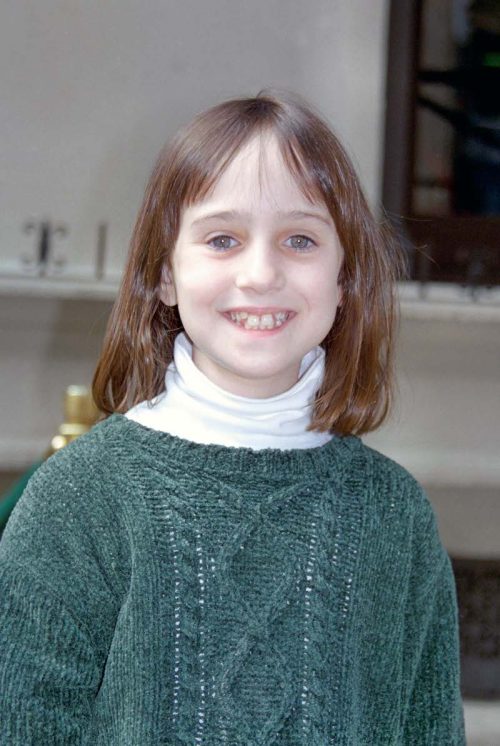
Wilson writes that her parents tried to keep her safe and notes that she “mostly acted in family movies” for that reason.
“I never appeared in anything more revealing than a knee-length sundress,” she says in the op-ed. “This was all intentional: My parents thought I would be safe that way. But it didn’t work.”
Even so, journalists would sometimes treat her as an adult. “People had been asking me, ‘Do you have a boyfriend?’ in interviews since I was six,” Wilson writes. “Reporters asked me who I thought the sexiest actor was and about Hugh Grant’s arrest for soliciting a prostitute.”
READ THIS NEXT: Former Child Actor “Was in Danger” on Movie Set, Co-Star Admits.
And she received unwelcome attention from men.
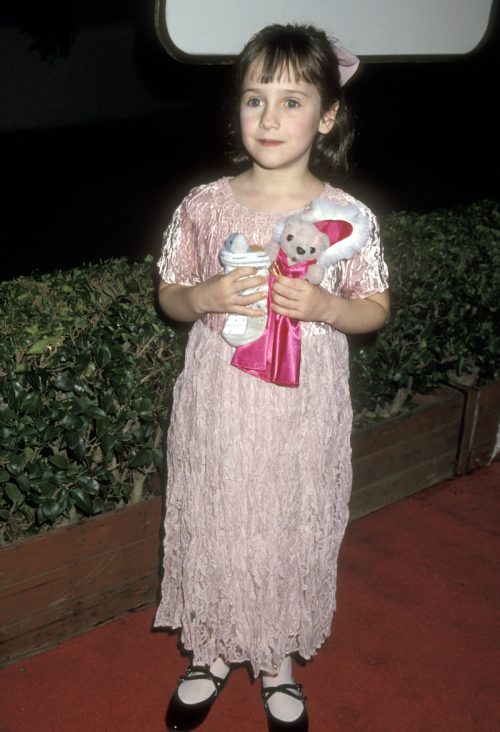
Worse than those interview questions were the even more upsetting actions from members of the public.
“It was cute when 10-year-olds sent me letters saying they were in love with me. It was not when 50-year-old men did,” Wilson says in the piece. She adds that her face was photoshopped onto graphic photos and that pictures of her were uploaded to sexual websites. “Every time, I felt ashamed,” the former child star writes.
She continues, “Hollywood has resolved to tackle harassment in the industry, but I was never sexually harassed on a film set. My sexual harassment always came at the hands of the media and the public.”
She’s grateful she had her family’s support.
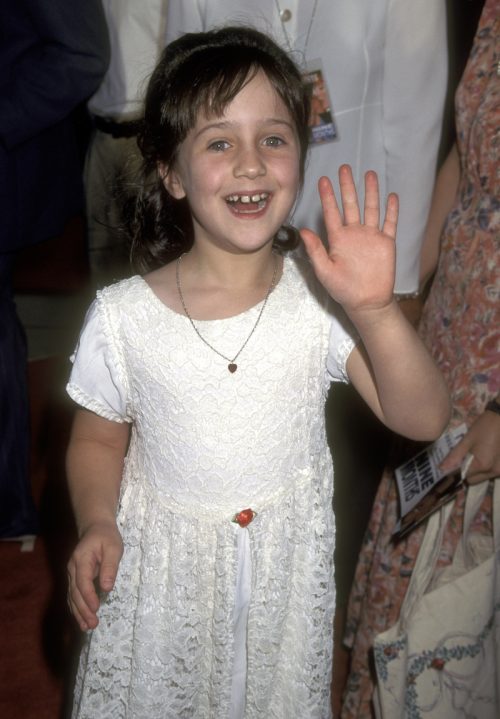
Wilson’s New York Times article came out soon after the release of the documentary Framing Britney Spears. Around this time, the media and public were revisiting poor and sexist treatment of Spears, particularly during the early part of her career.
“We both had dolls made of us, had close friends and boyfriends sharing our secrets and had grown men commenting on our bodies,” Wilson writes. “But my life was easier not only because I was never tabloid-level famous but also because unlike Ms. Spears, I always had my family’s support.”
For more celebrity news delivered right to your inbox, sign up for our daily newsletter.
Wilson has mixed feelings about her child star past.
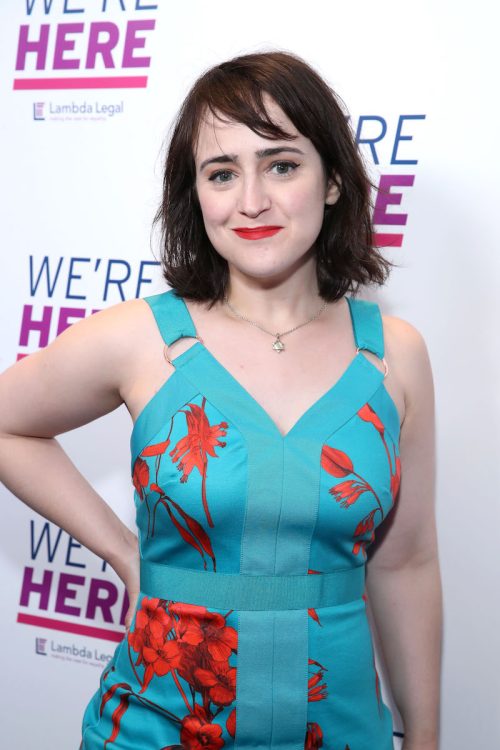
In an interview with Collider in March 2021, Wilson also spoke about her child acting experience.
“I’m generally glad I did it,” she said. “I had wonderful experiences that I never would have been able to have. It definitely meant that I had an audience for what I wanted to start writing and performing more, as an adult, that I wouldn’t have had otherwise. And it helped me pay for college.” These days, Wilson has been doing quite a bit of voice acting and writing. Her 2016 memoir is titled Where Am I Now?: True Stories of Girlhood and Accidental Fame.
But, of course, she also has regrets about being a child star. “I also do feel like that level of fame, for anybody, is not a natural thing and can be very dangerous for kids,” she said. “I appreciate it, but I do think that there are a lot of things around being famous as a child that we need to talk about.”
She also brought up “The Narrative” again, highlighting that the public is complicit. “Forcing that narrative upon them isn’t good,” she said of famous children. “It’s not helpful. The Hollywood studio system started that narrative, but it is the public that is continuing that narrative on today.”